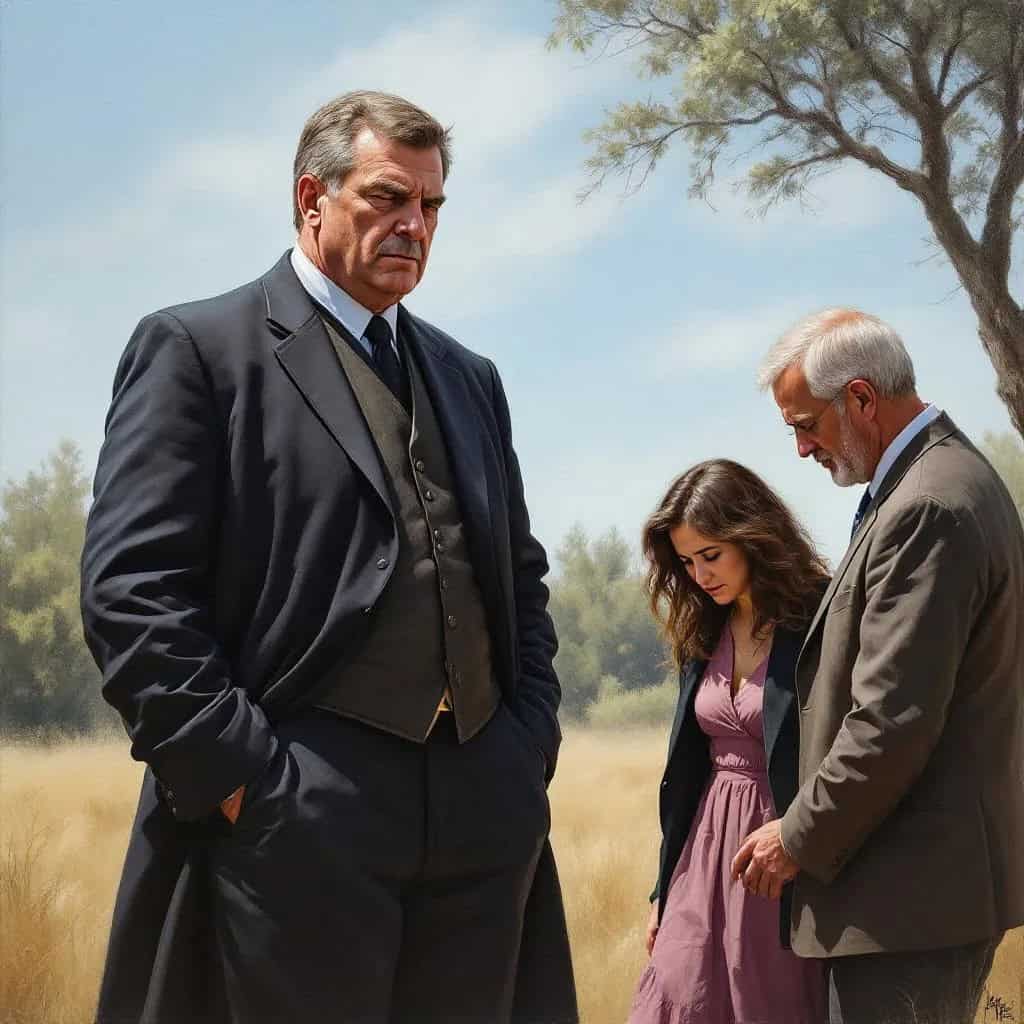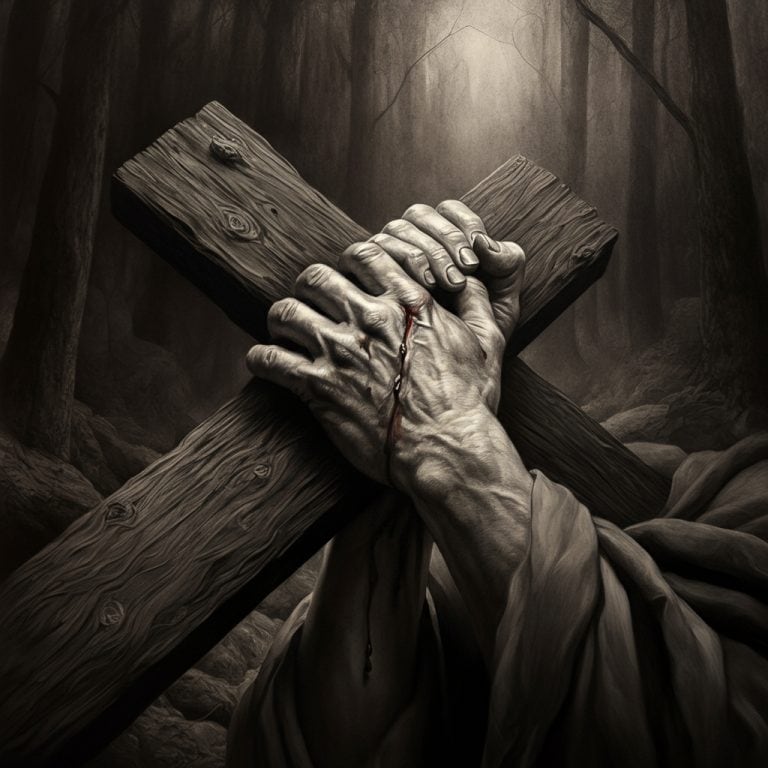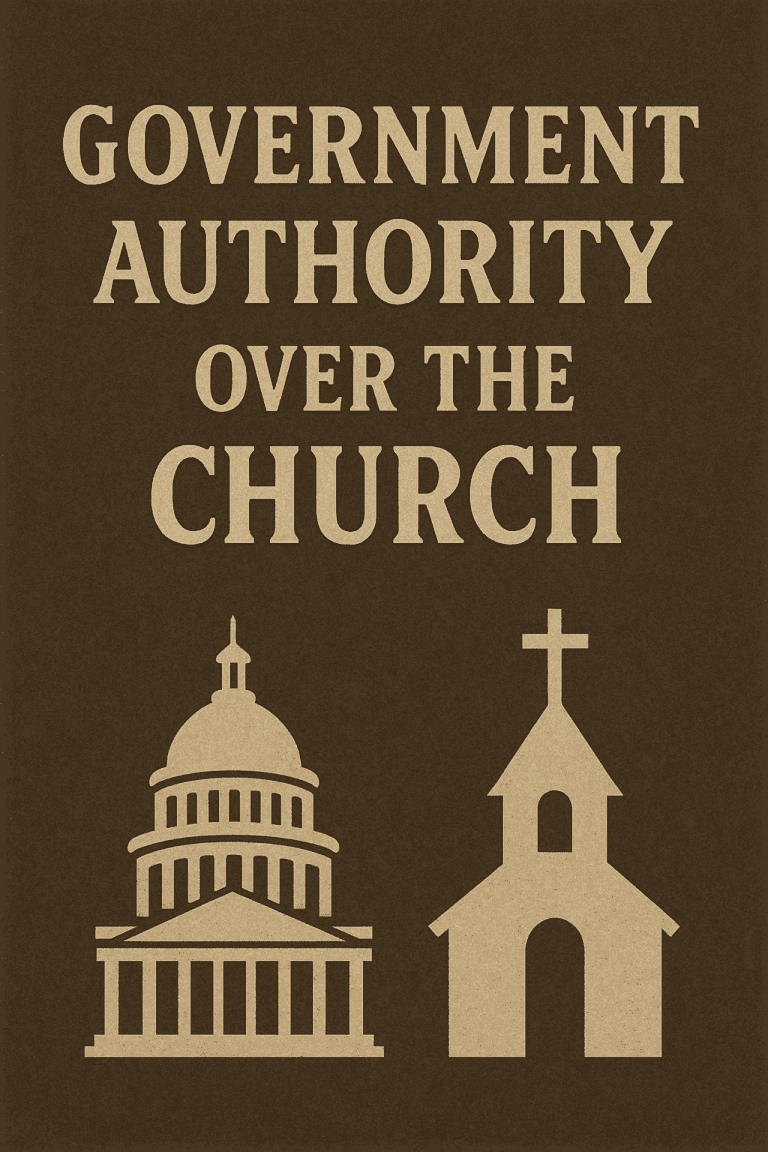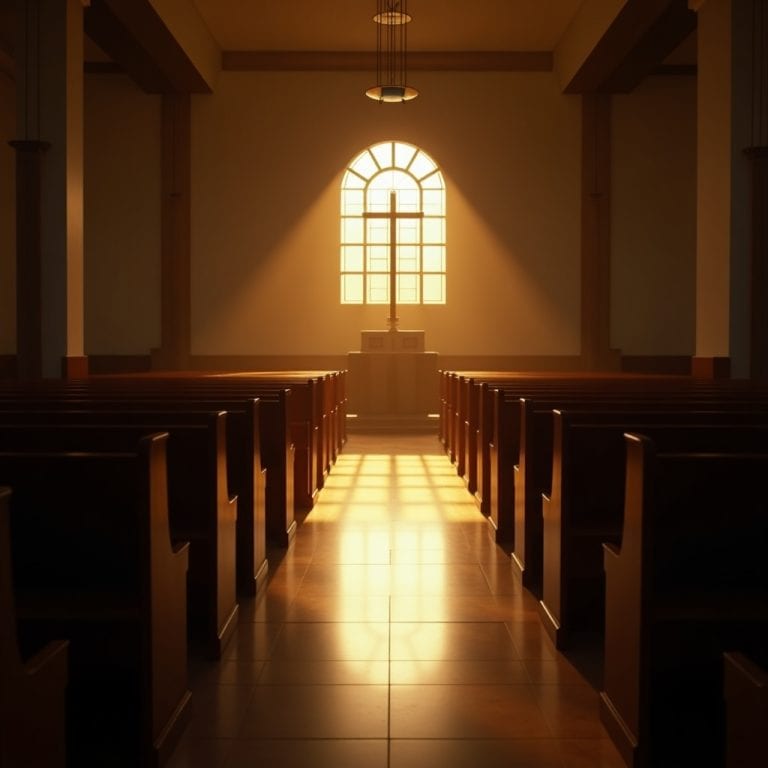What Really Causes Church Hurt?
Church hurt is real. It doesn’t take long in Christian community before someone experiences it. A harsh word from a leader. A broken promise. A betrayal that runs deeper than anyone expected. The phrase may be modern, but the problem itself is as old as the people of God.

So the question presses in: what really causes this kind of hurt? Scripture doesn’t leave us guessing. It shows the roots of the problem and reminds us that while people may wound us, Christ remains faithful.
The Root Cause: Sin in the Body of Christ
Every instance of church hurt ultimately traces back to one word: sin. The Bible says, “for all have sinned and fall short of the glory of God” (Romans 3:23). Even those redeemed by Christ still battle the flesh. James explains it plainly: “What is the source of quarrels and conflicts among you? Is it not your pleasures that wage war in your members?” (James 4:1).
So let’s be clear: church hurt doesn’t spring from the gospel itself. The gospel brings life. It comes instead from sinful people misrepresenting Christ. It is the result of pride protecting us from what we consider dangerous to our ego.
We shouldn’t be shocked, though it still stings when it’s us suffering the hurt. The church is a community of sinners being sanctified, not yet glorified. That doesn’t excuse the hurt. It just explains why it happens: broken people sometimes break others.
When Leaders Abuse Their Authority
Few wounds cut as deep as when spiritual leaders fail. God spoke through Ezekiel to condemn shepherds who fed themselves instead of the flock: “You eat the fat and clothe yourselves with the wool, you slaughter the fat sheep without feeding the flock” (Ezekiel 34:3). Instead of protecting, they scattered the sheep.
The New Testament offers the example of Diotrephes, a man who loved to put himself first, rejecting the apostles and refusing to welcome believers (3 John 9–10). Jesus condemned Pharisees who “tie up heavy burdens and lay them on men’s shoulders” (Matthew 23:4).
And we’ve all seen it. My family has experienced it!
When pastors or elders abuse power, manipulate with fear, or hide behind titles, they wound the very people they were called to serve. That betrayal of trust is a major source of church hurt — and it can take years to untangle.
And true leaders feel the pain of the hurt they’ve caused as well. No one escapes.
False Teaching and Doctrinal Corruption
False teaching is another cause. Paul warned the Galatians that if anyone preached a different gospel, “let him be accursed” (Galatians 1:9). To the Ephesian elders, he said, “savage wolves will come in among you, not sparing the flock” (Acts 20:29).
Jesus Himself foresaw this danger: “Many false prophets will arise and will mislead many” (Matthew 24:11). False teachers twist God’s Word to gain followers, money, or influence. The damage is devastating. Confusion replaces clarity. Trust is shaken. Souls are led astray.
When churches tolerate or promote false doctrine, they invite hurt into the body. And let’s be honest — some churches today preach more self-help than gospel. That may feel comforting in the short term, but it leaves people empty and misled in the end.
Division, Gossip, and Broken Relationships
Sometimes the source of hurt isn’t leaders but fellow believers. Paul rebuked the Corinthians for splitting into factions: “each one of you is saying, ‘I am of Paul,’ and ‘I of Apollos,’ and ‘I of Cephas,’ and ‘I of Christ’” (1 Corinthians 1:12). Instead of unity in Christ, they chased personalities.
Proverbs warns that “a perverse man spreads strife, and a slanderer separates intimate friends” (Prov 16:28). Gossip corrodes trust. Friendships collapse. Churches divide.
Jesus said it would happen: “At that time many will fall away and will betray one another and hate one another” (Matthew 24:10). We like to think that only happens “out there,” but betrayal in the church is just as real. And when it’s someone you trusted, the scar doesn’t fade quickly.
Unconfessed Sin and the Refusal to Confront It
Another cause is unconfessed sin left to fester. Paul confronted the Corinthians because they tolerated sexual immorality that even pagans condemned (1 Corinthians 5:1–2). Instead of mourning, they boasted. Their refusal to deal with sin hurt the whole church.
Jesus gave His people a process in Matthew 18:15–17 for addressing sin: go privately, bring witnesses if needed, and involve the church if necessary. But let’s be honest: many churches would rather sweep it under the rug. It feels easier in the moment. But long-term? The damage multiplies. Victims feel abandoned. The watching world sees hypocrisy. And the body limps under the weight of unrepentance.
Hypocrisy and the Loss of Credibility
Perhaps the most familiar cause of hurt is hypocrisy. Jesus called the Pharisees “whitewashed tombs, which on the outside appear beautiful, but inside they are full of dead men’s bones” (Matthew 23:27). When leaders and members say one thing but live another, it disillusions believers and drives seekers away.
Jesus also warned in Matthew 24:12, “Because lawlessness is increased, most people’s love will grow cold.” Hypocrisy thrives when holiness is abandoned. And as love grows cold, the church’s witness suffers. People who came hoping to see Christ instead find empty religion — and leave wounded.
Historical Examples of Church Hurt
This isn’t just theory. The Bible gives case studies. The Corinthians tolerated factions and immorality, which Paul had to rebuke harshly (1–2 Corinthians). The Galatians allowed false teachers to distort the gospel, causing Paul to marvel that they turned aside so quickly (Galatians 1:6). In the Old Testament, Israel’s leaders exploited the people rather than shepherding them faithfully (Ezekiel 34).
So no, church hurt isn’t new. We may use modern language to describe it, but God’s people have always struggled with sin in their midst. What feels like a fresh wound in your life has actually been repeated across centuries of God’s people. That doesn’t make it less painful. But it does remind us God’s Word has always spoken into it.
The Deeper Reality: Misplaced Expectations
Sometimes the wound deepens because expectations were misplaced. Psalm 118:8 says, “It is better to take refuge in the Lord than to trust in man.” When people place ultimate trust in pastors or in the institution of the church itself, they will be disappointed. Only Christ is unfailing.
Colossians 3:17 reminds believers to do everything in the name of the Lord Jesus. When the church forgets that focus, people begin to look horizontally for what only Christ can supply. The result is unmet expectations and inevitable hurt. We forget that the church is meant to point us to Christ, not replace Him.
Moving From Hurt to Healing
Knowing the causes doesn’t erase the pain, but it does point us toward healing. Peter reminded elders that the flock belongs to the Chief Shepherd, not to them (1 Peter 5:4). Healing begins when we look beyond sinful people to the One who never fails.
That doesn’t mean ignoring sin or pretending wounds don’t exist. Forgiveness and restoration require truth and accountability. Sometimes it requires leaving a toxic environment and seeking a healthier fellowship. Sometimes it means setting boundaries with people who continue in unrepentant sin. And sometimes, it means admitting, “Yes, I was hurt — but I won’t let that drive me away from Christ.”
Think of Peter. He denied Jesus three times, wounding himself and betraying his Lord. Yet in John 21, Jesus restored him. That same grace is available today. God binds up the brokenhearted (Psalm 147:3). The gospel that exposes sin also heals those who have been crushed by it. And that’s not a platitude — it’s lived reality for every believer who’s carried scars back to Christ and found Him faithful.
The Hope Beyond Church Hurt

What really causes church hurt? Scripture is clear: sin, false teaching, abuse of authority, division, hypocrisy, and misplaced trust. Jesus told us these things would happen. In Matthew 24 He said betrayal, hatred, and cold love would mark the days before His return. But He also promised that the gates of hell will not prevail against His church (Matthew 16:18).
Church hurt is serious, but it is not final. Christ’s love outlasts betrayal. His truth outshines lies. His grace restores what sin breaks. And here’s the thing: if you’ve been hurt, you don’t have to carry it as the last word. Don’t turn away from the gospel. Turn to Christ. He is the faithful Shepherd who never wounds unjustly, never manipulates, and never lies. He is the One who redeems broken people and builds His church — even through scars.
Walt Roderick is a Christian writer who cares more about biblical clarity than online applause. He writes to strengthen believers and confront spiritual drift.






